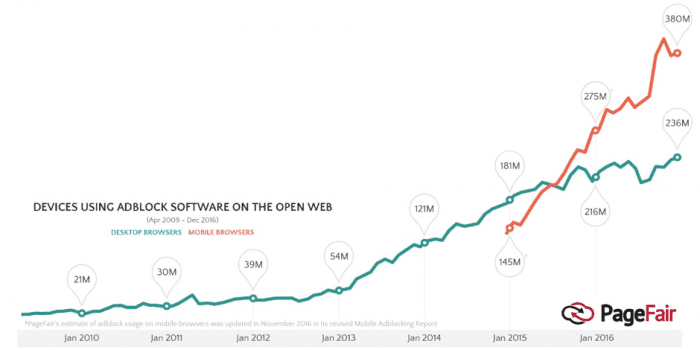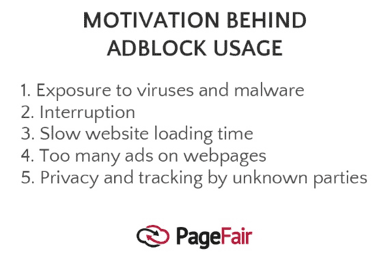Paywalls, donations, monthly subscriptions, stealing your processing power!?…..the internet’s struggle to figure out which model works best for service providers, content creators and consumers.
Recently, Gizmodo broke the news that online torrent search engine, The Pirate Bay, had been caught trialing a new means of monetizing site visitors by getting them to mine cryptocurrency through the browsers on their devices without their knowledge or consent.
Naturally, people weren’t happy. I mean who would be? Modern device battery times deteriorate faster than fruit from Aldi.
But this does raise a good question, just how much is that content worth?
We are all very easily detached from the human and technological cost of our favourite media sites and flavour of the month apps. Ads have served as means of covering these costs for quite some time. The systems are in place, easy to implement and are very much a natural part of the online ecosystem.
However there has been increasingly growing negative sentiment towards this form of revenue generation, and it seems like it’s about to hit fever pitch.
In this article, I’ll look at some of the key issues which will affect digital advertising effectiveness in the year ahead.
Revenue vs Usability
A Pagefair report published February 2017 found that adblockers were now installed across 615 million devices, growing 30% in 2016. The report also stated that adblock usage was now mainstream across all ages and not just those pesky millennials.
What went wrong? Seemingly at some point along the way, the industry as a whole forgot about the consumer in a bid to try and maximise performance and revenue. Interstitials, ad overkill, loads speeds, overlays, auto play videos, pagination, and bad contextual advertising all encouraged users to turn to adblockers.
Adblockers are an issue that was born out of both the laziness and greediness of businesses on both sides of the ad industry fence, and no one seemed to be addressing the issue. Advertisers focused too heavily on the metrics they were trying to drive and lost track of the human side to marketing. Meanwhile, publishers were just happy that they could afford to pay their staff.
Recently, the ad industries biggest stakeholders came together to form the Coalition for Better Ads, whose concentrated effort and mission was to address these exact issues, preserving valuable free online content whilst not disrupting the consumer experience. Microsoft, just last month, joined the commission whose other members include tech behemoth Google, retail giants P&G and Unilever, and advertising colossus WPP, amongst many others.
Relevance vs Privacy
Other than the annoyance of ads themselves, perceived infringement of privacy is another reason people are turning towards ad blockers. People don’t like feeling as though information about themselves is out on the internet without their consent. It brings up a slightly different fight for advertisers; relevance vs privacy.
Apple, who are notorious for valuing users’ safety, announced that they were taking matters into their own hands, acting in the consumer’s best interest by cutting down on the duration of the cookies on iOS devices.
The tool, dubbed Intelligent Tracking Prevention, will utilize a machine learning algorithm to identify when you’re being tracked by third-party cookies and wipe them after 24 hours, in comparison to the 30-day cycles they were on before. This would prevent advertisers from identifying those users and implementing the different cookie-based strategies they would use to target them.
By limiting the data that marketers can gather and the time frame that they can gather it in, it affects their ability to identify those users and build robust profiles on the people they are tracking. Apple has received requests from big advertisers to not follow through with this. Nevertheless, they seem unwilling to budge.
Whilst surely an annoyance, most in the industry seem fairly optimistic about their abilities to bypass the issue or minimize the effects that it will have.
The GDPR
Expect to see more news and developments on the privacy front in the coming months as the GDPR (General Data Protection Regulation) comes into play, changing the face of online data protection laws forever.
This new piece of legislation will change how businesses acquire and utilize data, with increased emphasis being placed on the security of it. It will give consumers the ability to control the data an organization possesses on them online.
Clear consent will need to be given by an individual and can be revoked as and when they decide to so. Whilst the tone of the conversations marketers are having surrounding GDPR seem to skew towards the negative side, there are those who believe it could go the complete opposite way.
The 2 key arguments that get mentioned in favour of GDPR are restored trust and improved perception of online security.
Consumers can trust that they’ve allowed that marketer to utilize the data to deliver a marketing experienced tailored to your own. This is combined with a restored sense of security that consumers know exactly what information about is being tracked and by who, with the ability to change it at any point in time.
Most marketers will point out that this will kill a key proportion of the people that can be reached out there, whilst others will say that it leaves you with exactly who you should have been targeting in the first place. Whilst, too early to speculate at this moment in time, however, one thing that is certain, is that advertisers will need to change.
What lies ahead?
Living in the age of information and this has definitely served as the catalyst for rapid innovation and the evolution of existing methodologies. The markets dictate the outcome and a sense of balance is usually restored.
This change and innovation has led to the rise of services like Patreon, a membership platform, with a tiered subscription service where fans subscribe to creators they want to support which provides them with the ability to fund exactly what they want, in exchange for exclusive access to content, giving them flexibility to keep producing the content that.
Creators, on the other hand, are given an avenue for which they can interact with the most dedicated of their fan base, cut out the middlemen, and can look to keep producing with a sense of security, all for a 5% cut of the subscriptions. That is on top of whatever another way one might choose to monetize their own services.
It provides a potential solution to an issue where all parties involved get to keep doing/enjoying what they have been.
It would be a bit dramatic to say that online ads are in any danger of ever disappearing completely, yet it would also be foolish to think that big change isn’t on its way. Adapting to this change will be crucial, and understanding ones audience will be key. Now, more so than ever, innovation, bravery, and empathy will dictate success in the online space as there is an increasing importance placed correct utilization of limited data.
from Blog – Smart Insights http://www.smartinsights.com/internet-advertising/internet-advertising-strategy/are-you-content-with-your-free-content/
via Tumblr http://euro3plast-fr.tumblr.com/post/167045834884


No comments:
Post a Comment